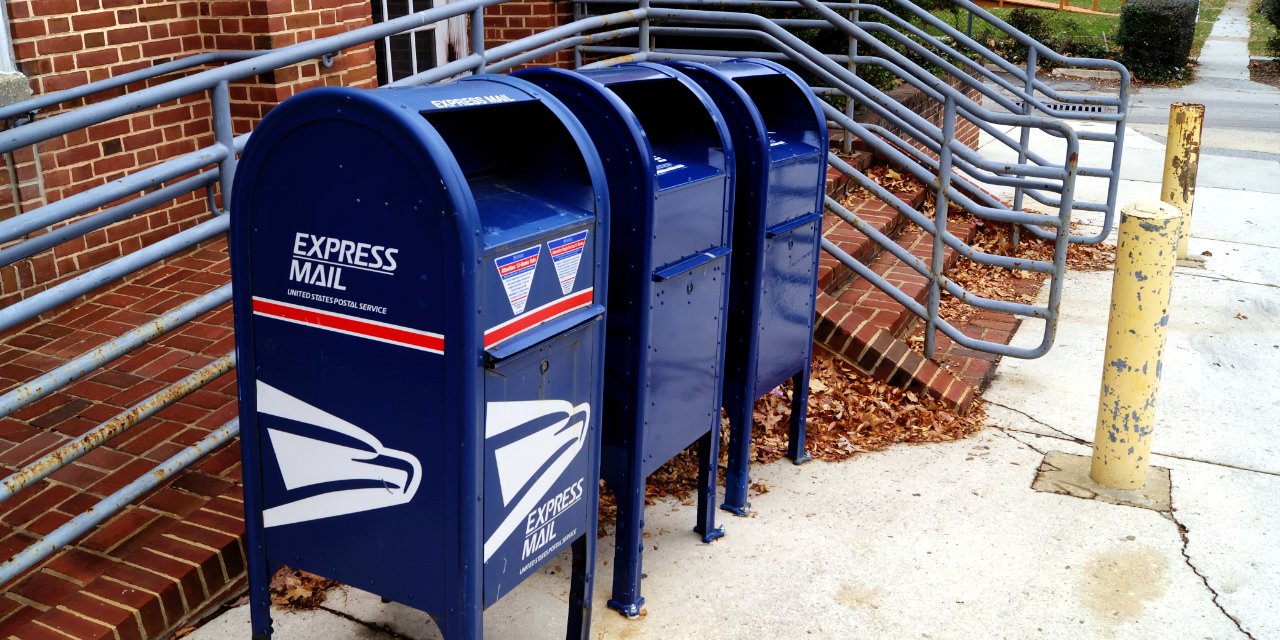Will The U.S. Postal Service Survive The Coronavirus Crisis?
The $2 trillion coronavirus stimulus CARES act passed last week in Washington includes a provision for U.S. Postal Service to borrow up to $10 billion from the Treasury to fund its operations.
But some officials and lawmakers are sounding the alarm bells that this loan facility isn’t enough to keep the lights on for long and urge more permanent action.
“Mail volume has already plunged by the largest percentage since the Great Recession and is likely to drop by more than it did during the Great Depression of the 1930s — the USPS believes it may drop by 50% or more this year.”
NALC President Fredric Rolando
U.S. Postal Service Has History of Being in The Red
The U.S. Postal Service was already bleeding red ink before the coronavirus (COVID-19) emergency. That is hardly new news.
Between a steady drop in mail volume and a controversial requirement by Congress to fully pre-fund pension plans, the agency has struggled to reduce costs in other areas to rightsize the ship.
Now the coronavirus (COVID-19) crisis appears to have accelerated the bleak finances of the USPS, especially if the estimated 50% drop in mail volume does become a reality over the next few months.
Rep. Gerry Connolly (D-Va.) put it bluntly in an interview with Yahoo Finance on Tuesday, “We need to start thinking in those apocalyptic terms… because we are about to face the apocalypse… in many ways the final straw.”
Connolly believes that without intervention from Congress, the U.S. Postal Service will run out of cash in June. Even the agency itself is deeply concerned about its liquidity under the current circumstances.
In a statement emailed to Barron’s, a representative said, ”The Postal Service remains concerned that this measure will be insufficient to enable the Postal Service to withstand the significant downturn in our business that could directly result from the pandemic… Under a worst-case scenario, such downturn could result in the Postal Service having insufficient liquidity to continue operations.”
NALC President Rolando spells out what he believes needs to happen in the next round of coronavirus (COVID-19) related legislation:
“To both protect the public health and to stabilize our economy, the Postal Service must be strengthened in the next round of legislation to battle the deep economic recession that is now beginning. Congress must act to provide at least $25 billion in direct financial assistance to the Postal Service and forgive its outstanding debt, as proposed by the House of Representatives. Although the Postal Service has not received taxpayer appropriations (other than for military voting and free mail for the blind) since the early 1980s, the present crisis warrants such appropriations now.”
The U.S. Postal Service Political Dilemma
The beltway bickering about the future of the post office has been going on for years. While it is an independent agency of the U.S. government, major business decisions continue to remain under the control of Congress.
To put it simply, the U.S. Post Office cannot make drastic changes to its business operations without legislative action.
Last year, Postmaster General Megan Brennan, in a House Oversight and Reform Committee hearing on the agency’s financial status said, “Absent legislation and regulatory reform, in all probability, we’ll be out of cash in 2024.”
The coronavirus (COVID-19) emergency and the resulting economic meltdown may have put the U.S. Postal Service into a crisis four years sooner, leaving very little time for Congress to act.
The $10 billion loan the U.S. Postal Service may access from the Treasury seems like another band-aid solution to a much bigger problem. One day Congress will have to stop kicking the can down the road and address postal reform for good.
While its mission is to serve all Americans, millions of small and medium-sized businesses rely on the U.S. Postal Service to deliver online orders.
Equally, millions of Americans rely on the U.S. Postal Service as the lifeline that provides connections to government, commerce, and with each other.
It seems everyone agrees the United States Postal Service is vital to the U.S. economy and the communities it serves.
However, finding a political solution that enables the postal service to operate in a fiscally responsible manner continues to be allusive. Many at the U.S. Postal Service and in Washington hope this crisis will finally be the wake-up call for bipartisan action.
The U.S. Postal Service does not receive tax dollars for operating expenses and relies on the sale of postage, products and services to fund its operations.
READ MORE: USPS Free Expedited Packaging Supplies Under Fire from OIG
[post-cta]
If you liked this article and would like to engage with other small business entrepreneurs selling on marketplaces, join our [the_ad id=”41560″ inline =”1″]. You can also find us on [the_ad id=”41579″ inline =”1″], [the_ad id=”41573″ inline =”1″], [the_ad id=”41575″ inline =”1″], and [the_ad id=”41577″ inline =”1″] or sign up for our newsletter below.
SIGN UP. BE INSPIRED. GROW YOUR BUSINESS.
We do not sell your information. You can unsubscribe at any time.
Richard Meldner
Richard is co-founder of eSeller365. He has over 17 years of experience on eBay which includes tens of thousands of sales to buyers in over 100 countries and even has experience with eBay’s VeRO program enforcing intellectual property rights for a former employer. And for about two years Richard sold products on Amazon using Amazon FBA in the US.
To “relax” from the daily business grind, for a few weekends a year, he also works for IMSA as a professional race official.

